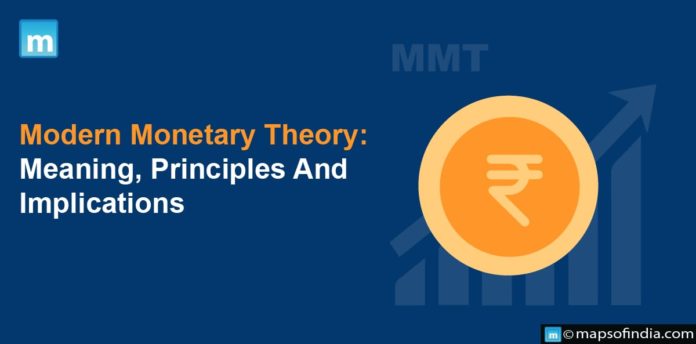Modern Monetary Theory (MMT) is a heterodox macroeconomic theory that questions traditional economic assumptions, particularly about the role of government debt and inflation. It contends that countries with fiat currency, such as the United States, are not bound by revenue constraints regarding federal government expenditure. This is due to the government’s ability to manufacture money out of thin air to fund its expenditures.
Key Principles of MMT
-
Currency Issuance and Sovereignty
The concept of currency issuance is one of the key principles of MMT. According to MMT, countries with sovereign control over their currency, such as the United States or Japan, can create their currency without fear of default. Unlike families or businesses, sovereign governments can print money whenever they want.
-
Government Spending and Deficits
MMT contradicts the widely held belief that tax receipts limit government expenditure. Proponents claim that a country can spend without relying on taxes or borrowing as long as it issues its currency. This viewpoint says that deficits are not intrinsically harmful and can be used to encourage economic growth, particularly during recessions.
-
Full Employment as a Policy Goal
As a primary policy goal, MMT focuses a high emphasis on creating full employment. According to supporters, governments should use fiscal policies, such as direct job creation, to ensure that all available labor resources are utilized. MMT seeks to maximize long-term employment while minimizing unemployment’s social and economic consequences.
-
Inflation Control through Taxes
MMT recognizes that excessive government expenditure may result in inflation. To address this worry, proponents argue that taxes can be used to manage inflation by lowering total demand in the economy. Governments can avert inflationary pressures by taxing excess money out of circulation.
Implications of MMT
MMT pushes for government spending to be more active in tackling economic problems. They say governments should be bold and spend more to encourage growth and eliminate unemployment, even if it means running higher deficits. It also advises that governments prioritize full employment as a major economic aim rather than fiscal austerity. They believe that greater tax collection will assist in offsetting the expense of government spending.
Criticisms and Challenges of MMT
Mainstream economists have criticized MMT, citing concerns that it could lead to hyperinflation and damage economic stability. They contend that governments cannot print money without consequences and that unsustainable debt would ultimately tax future generations. MMT supporters respond to these issues by noting that inflation is not unavoidable due to government expenditure. They claim that various policy tools, such as automatic stabilizers and taxation, can be used to manage the danger of inflation.
Modern Monetary Theory deviates from traditional economic thought by questioning long-held beliefs about government spending, deficits, and the role of money. While its principles have gained popularity in policy debates, MMT remains a contention among economists and policymakers. As the globe grapples with economic issues, MMT’s principles are expected to have a role in determining future economic policies and discussions.





